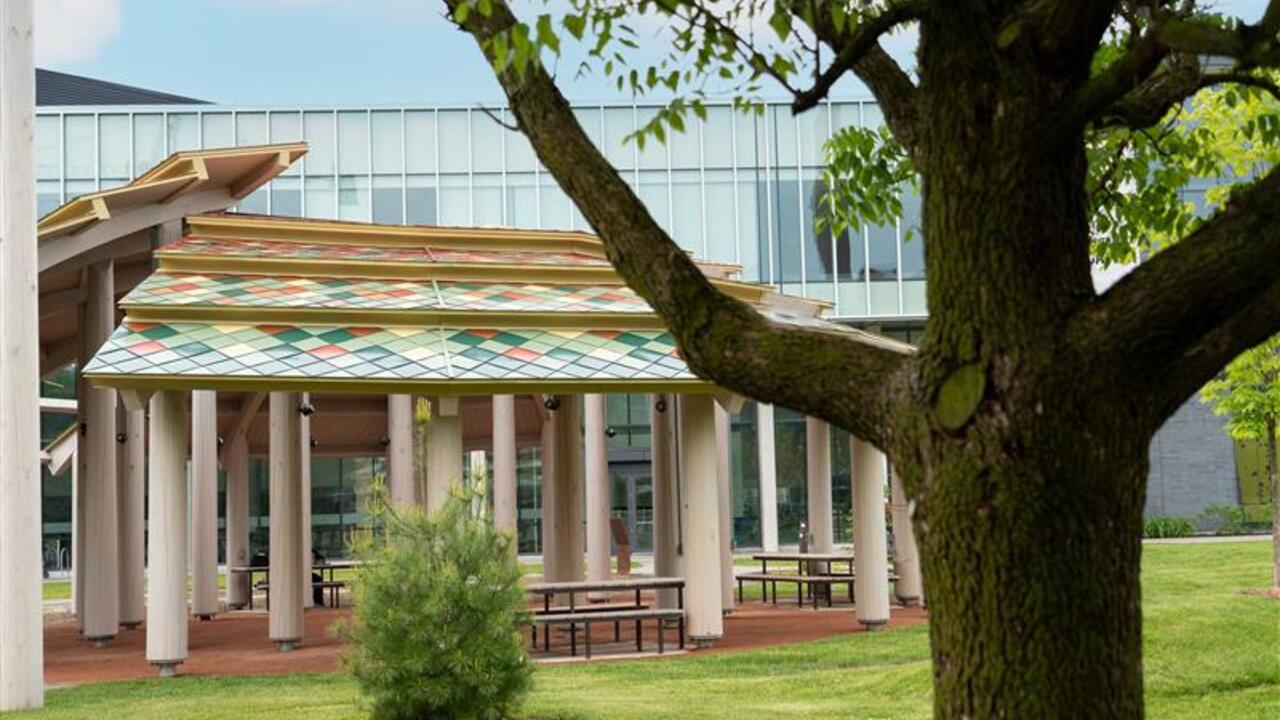
Honouring Indigenous histories through story, space, and action
President Vivek Goel recognizes and celebrates the diverse cultures, contributions and communities of First Nations, Inuit, and Métis Peoples at the University of Waterloo

President Vivek Goel recognizes and celebrates the diverse cultures, contributions and communities of First Nations, Inuit, and Métis Peoples at the University of Waterloo
By Vivek Goel President and Vice ChancellorNational Indigenous History Month invites all of us to recognize and celebrate the diverse cultures, contributions and communities of First Nations, Inuit, and Métis Peoples. At the University of Waterloo, this month also encourages reflection, learning, and a deepened commitment to reconciliation.
This moment calls for more than recognition. It requires truth-telling about the deep and ongoing impacts of colonialism and an honest examination of the responsibilities that institutions like ours carry. As a place of learning, research and community-building, Waterloo holds a unique role in shaping a future rooted in respect, justice, and shared responsibility.
Since making our formal commitment to reconciliation in 2022, we continue to integrate Indigenous perspectives into the life of our campus. One exciting new development for this commitment involves the transformation of our physical spaces and the way we imagine and build our shared environment.
Brook McIlroy, the prime consultant leading work on our new Campus Plan, brings a track record of creating inclusive and sustainable spaces. Their Indigenous Design Studio—led by Indigenous architects and designers—contributes insight and leadership to several important initiatives at Waterloo, including the Indigenous Relations office suite, Longhouse Labs, and the Indigenous Outdoor Gathering Space on the BMH Green. Their involvement in the design of the new 500-bed residence and ongoing Indigenous wayfinding initiatives continues to shape a more inclusive and welcoming campus. The renaming of Main Path as Two Row Path represents a significant start for the wayfinding initiative.
These spaces support cultural practice, ceremony, and community connection. Recent additions such as dedicated smudging signage increase awareness and respect for Indigenous traditions. These visible, permanent changes matter. They reflect not just intention, but action.
Serving as another visible symbol of Indigenization, UWaterloo recently marked the launch of the new Indigenous logo for the Waterloo Warriors. Developed in collaboration with Indigenous student-athletes, the logo incorporates traditional teachings and symbolism, creating a powerful visual expression of Indigenous identity within university athletics.
This month, thanks to the hard work and dedication of the Office of Indigenous Relations UWaterloo community members can take part in two signature events that highlight Indigenous presence, storytelling, and celebration.
On June 18, Kai Potts, a Two-Spirit Nakota Sioux storyteller and advocate, joined us for an afternoon of conversation and reflection. Kai’s powerful stories drew on lived experience, cultural teachings, and advocacy work. Speaking in front of a packed crowd, students, staff and faculty heard one person’s unique tale of identity, gender, mental health, and the power of reclaiming culture.
Despite a last-minute change of venue due to rain campus also gathered in the Student Life Centre to mark National Indigenous Peoples Day. The celebration featured ceremony, music, art, and a shared community meal.
These initiatives—ceremonies, spaces, symbols, and stories—remind us that reconciliation requires action. Not once, and not only in June, but every day.
Let this month serve as an invitation. Take time to listen. Take part in community. Learn from Indigenous voices. And continue the shared work of building relationships rooted in humility, respect, and accountability.

Read more
Campus members come together to recognize the University’s ongoing commitment to the 2SLGBTQIA+ communities

Read more
Waterloo commits to decolonization, Indigenization and reconciliation

Read more
The Mush Hole Project is an art and performance event at the former Mohawk Institute Indian Residential School in Brantford
The University of Waterloo acknowledges that much of our work takes place on the traditional territory of the Neutral, Anishinaabeg, and Haudenosaunee peoples. Our main campus is situated on the Haldimand Tract, the land granted to the Six Nations that includes six miles on each side of the Grand River. Our active work toward reconciliation takes place across our campuses through research, learning, teaching, and community building, and is co-ordinated within the Office of Indigenous Relations.